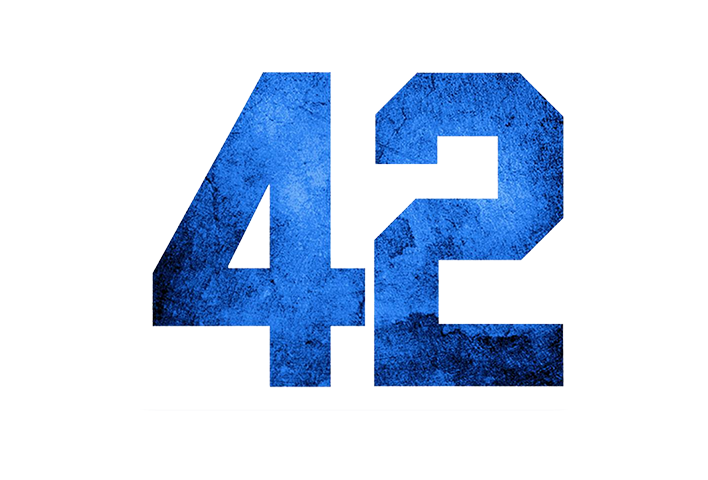Upon first reading this title, I wouldn't blame you for thinking I must be some sort of terrible person and undeserving son for voicing such a sentence. I acknowledge that dementia is a traumatic and awful experience not only for the person suffering, but for their loved ones around them who are caught up in the painful journey.
But for me, my mother's descent into dementia has been the actual discovery of who she is (was?) as a real person. I have debated a long while about whether or not to publish this, but in the end, I feel that some of the darker sides of my family history probably needs to be told.
As a young person growing up in a close knit family, I was close to both my parents. I thought that they were the epitome of the perfect mum and dad, even though I was often troubled by some of the things my mother said and did.
You see, my parents had an arranged marriage, which is a common thing in my culture, and in Asia, where I grew up. My mother was the daughter of a well to do doctor, highly respected in the area, but unknown to most people, a demanding, controlling, tyrant around the house. For instance, my mum and her siblings were forbidden from speaking at the dinner table during a meal, and corporal punishment was dealt out to them with alarming frequency. This obviously had a detrimental effect on the emotional development of her, and her brothers and sister.
Her parents saw it fit to arrange her betrothal to my father, who was the son of a (lowly) clerk, but a brilliant, self made young man who was on the way to becoming a successful doctor in his own right. For some reason, this fact seemed to cause some sort of irrational anger in my mother towards any member of my father's family.
I mean, I think my mum and dad grew to actually love each other during their married years, but it seemed my mother always held a grudge against all members of my father's family - even those not involved in the decision around the arrangement of their marriage. As kids we were always discouraged from interacting with my dad's side of the family, and I think that grudge my mother had against them eventually was directed at me, because some of my most favourite uncles and cousins were on my father's side.
I was also lucky enough to be sent off to boarding school when I was about 15 years old. Being away from the direct influence of my mother for so many years, and getting to visit my friend's families on short holidays also helped to open my eyes that the sort of behaviour my mum exhibited was really out of the norm of what a caring, compassionate mother could be.
My returning home from my long stint away from my family is what started driving the rift into what was previously my close (almost to the point of being needy) relationship with my mother. I began to rebel against some of her more irrational methods of trying to drive wedges between extended family members, and that annoyed her because I was not being subservient and obeying her directions like my younger sister (who basically never left home) was.
Ironically, my time away from home actually made me closer to my father as I appreciated his quiet dignity and wisdom more as I grew older. And that also incurred the chagrin of my mother as she tried in many ways to curry my favour again and distance me from my father.
I tried to be the 'good son' and put up with this behaviour for many years, but it all culminated about a decade ago when my father suffered a stroke that took away his ability to communicate for a year before it degraded his health to such an extent that it eventually took his life.
Losing my father tore me up more than I expected. I realised that he was the rock that held the family together, and without him around, my mother's behaviour grew even more unbalanced as she sought to drive wedges even between my two beloved sisters and me. It made it worse when I discovered later that during my father's last year alive, when he was rendered helpless and immobile by his stroke, that my mother was regularly mentally and physically abusing him. I found out that neighbours would hear her screaming at him in frustration and called the authorities to the house on more than one occasion. I felt I could never forgive her for that.
After my dad passed away, my younger sister took my mother into their home to look after her. That act of compassionate kindness however, seemed to trigger a new level of irrationality in my mother, and she began a new complex theatre of emotional blackmail, lies and deceit to try and instil mistrust, fear and doubt in the minds of all family members. I began to distance myself from her day to day dealings as much as I could.
My visits to her were very infrequent, and would always be painful, as she struggled to weave the various fabricated stories, created to cause consternation and discomfort, together to try and trigger me. I realised that she had so many variations and lies on so many fronts, that it was getting increasingly difficult for her to make them consistent or even realistic any longer. I just sat and nodded most of the time and let her words wash over me. I long ago realised that trying to push back would just make her explode in irrational rage.
Soon, months would go by between my visits to her. I felt that whatever her love and maternal instincts were, they were simply absent from her personality now as she turned into a single minded person bent on the destruction of her own family unit who were only trying to be there for her.
In the last year or so, my sisters kept updating me on the deterioration of my mum's mental health. While she is still physically OK, she has been exhibiting the early onset of dementia.
I decided to resume my semi-regular visits to her. The first couple of times, I was amazed at the transformation. Her inability to recall her convoluted web of deceits meant that she simply did not bring them up at all, and simply chatted about meaningless, everyday stuff. That was such a relief for me. She simply could not remember, or summon the dark energy any longer to keep those machinations afloat, and that was a real blessing!
It actually made my visits to her pleasant again. I normally crave in depth intellectual conversation (like I had with my dad), but in this case, I was happy to just sit and chat about vacuous things like the weather and what was on TV because it didn't require the emotional wrangling of the past. I didn't even mind repeating the same stories or answering her same question repeated 3 times in the past 10 minutes, because suddenly my soul felt free again, and I felt that I was once again in the presence of my mother of old who was caring and protective over me.
My wife and kids have also resumed visitations, and they have all agreed with my sentiments that it is so much easier now to simply be with her and not have to be 'on guard' emotionally or watch what they say lest it be taken out of context and used against them.
I have noticed a gradual decline in her memory and mental faculties in the past few months, and I fear for where that will lead, but for now, at least she still remembers me and my sisters when she sees us, and while she cannot remember my wife and kids when they are not there and I visit her alone, when she sees them in person, she does recall who they are and I do see a delightful, genuine smile on her face when she sees her grandkids walk in.
The affliction that normally takes away all of a person over time has actually chosen to remove the darker aspects of her personality first, revealing the simple, but genuine soul beneath. I will cherish being in the presence of this part of her life before that too, is eventually gone.






